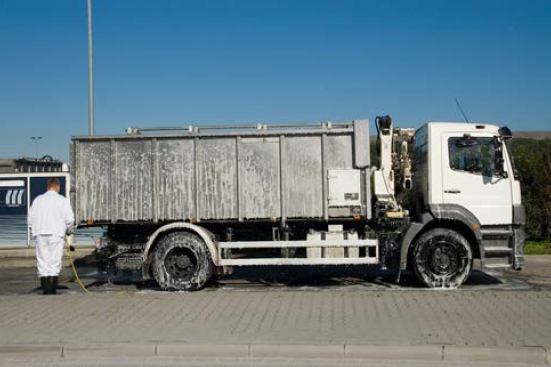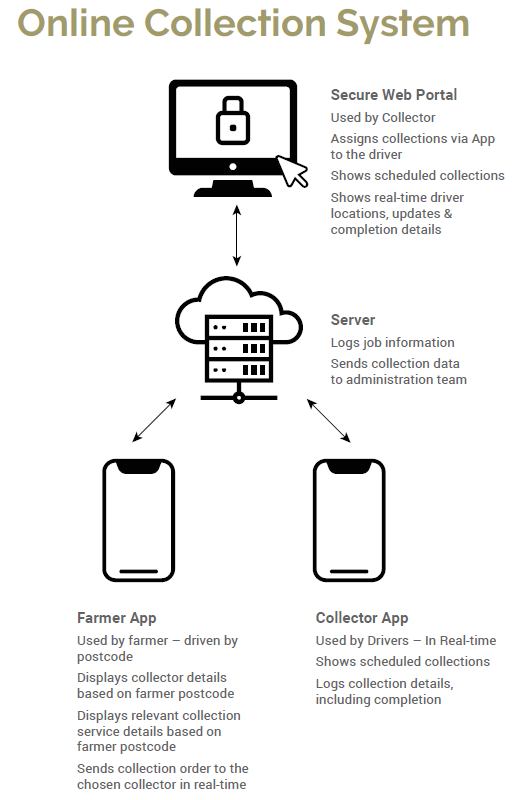Case Study 11
Efficient collection of fallen stock
The collection and disposal of fallen stock without undue delay is an important component of farm biosecurity in both normal and disease outbreak scenarios.
Like all animal by-products, fallen stock is highly perishable, especially when not chilled and poses a high risk of spreading animal diseases or zoonosis if not safely managed. Organising a quick and safe collection of fallen stock from the farm and transport to the processing plants is therefore an important step.
While the collection of animal by-products from slaughterhouses, cutting plants, butcher shops or retailers are normally organised on fixed daily schedules, the collection of fallen stock from farms is an ad hoc service which must be well organised to ensure timely collection.
Most service providers now use a digital system that has transformed fallen stock collection. Before this, farmers had to telephone or fax the collector to report their fallen stock and request a collection. Collection orders were printed and manually sorted into the different regions and passed to the truck drivers who were responsible for devising the best routes to pick up their orders. Further administration was required at the end of the day to check and record all the paperwork from the collection rounds.
Benefits for the farmer
-
Takes seconds to send a job to the collector
-
Simple and easy to use
-
Free booking service
Benefits for the collector
-
Driver receives order on their smart device
immediately with details of: -
-
pick up address
-
species type
-
number of fallen animals or containers
-
-
Collection can immediately start without
further paperwork -
Drivers do not need local knowledge of the
area and farms -
Collection route is automatically optimised
by GPS and fully guided: -
-
Shortest / fastest route navigation
-
Load of the truck (maximum weight)
-
Maximum driving time / working time
-
Live updates and addition of new
orders
-
-
All data immediately processed for the
recording centrally -
Easy access to data for competent veterinary
authority checks
Benefits for the Environment
-
Safeguards human and environmental
receptors from disease risk -
Reduced potential for odour from
decomposed material during transport /
processing -
Improved quality of ABP material for
processing into sustainable products -
Optimised transport reduces fuel
consumption and associated emissions

These systems of data handling have optimised the efficiency and efficacy of fallen stock collection. All systems are compliant with the requirements of the Animal By-Product Regulations and approved by the competent authorities and systems are certifiable by an independent body.
Case Study 11 - Version 1, October 2023
